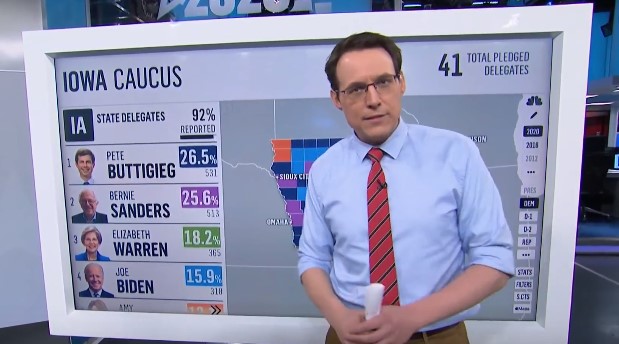During the first week of February, the drama surrounding the Iowa caucus became a big headache for the Democrats and left seeds of doubt about in the minds of some voters in regards to result legitimacy leading up to last week’s New Hampshire primary.
In what was expected to be a several-hour tallying of the votes, the results were instead released partially over the course of four stress-filled days due to errors and technicalities which ultimately ended with Vermont Sen. Bernie Sanders and South Bend, Indiana Mayor Pete Buttigieg locked in a virtual tie for first.
On the night of Feb. 3, the results came in slowly, leading to some slight concern. Several hours into the polling, it was suddenly announced that the mobile app being used to deliver the voting results from each precinct to the Iowa Democratic Party (IDP) was malfunctioning due to coding issues, leading to widespread anger, ire and ridicule directed at both the IDP and the Democratic National Committee (DNC) on Twitter.
Soon afterward, with barely 2% of the votes having been counted as they showed Buttigieg with a narrow first-place lead over Sanders, the South Bend mayor went onstage in Des Moines and delivered a speech to his supporters, saying “We don’t know all the results, but we know—by the time it’s all said and done—Iowa, you [will] have shocked the nation. Because, by all indications, we are going into New Hampshire victorious.”
Buttigieg’s comments drew major criticism in the hours that followed. Many online were angry that he had chosen to give a speech alluding toward victory as the results had all but barely been revealed. Later on, the DNC issued a statement saying that they were stepping in to help the IDP with the count to ensure “quality control.”
As time went on and the caucuses came up on day two with only 60% of the polling done, the app being used to report the results was put under the media’s microscope.
Reports revealed that in addition to the source code showing signs of sloppiness according to cybersecurity experts, the app was found to have two fundamental flaws. Firstly, the voting results that it reported back to the IDP were vastly different than what was initially recorded prior to being sent off. Secondly, the process used to download the app for testing prior to the caucuses proved difficult for many users.
Because it was not able to be downloaded via an app store, caucus managers with Apple devices had to first download a separate app that would then allow for beta versions of the vote reporting app to be sent to the users’ phone. For Android users, specific device settings had to be changed before the app could be downloaded.
There were reports of people having difficulty signing in to the app and according to Massachusetts-based security firm Veracode, the app’s security was so insecure that everything from vote totals to passwords could have been easily altered or accessed due to its hacking vulnerabilities.
Related Article:
As hours passed, nerves were at an all-time high. With the results coming in at a snail pace, Buttigieg held a technical lead over Sanders due to being up by three delegates. Iowa’s delegate-based voting system is similar to the electoral college.
On Feb. 6, with 97% of the results in and him holding a strong lead in the popular vote, Sanders took to the stage in Manchester, New Hampshire and gave a speech declaring himself to be Iowa’s winner.
“Where I come from, the person who gets the most votes wins,” Sanders said.
At noon that same day, DNC head Tom Perez tweeted “Enough is enough. In light of the problems that have emerged in the implementation of the delegate selection plan and in order to assure public confidence in the results, I am calling on the Iowa Democratic Party to immediately begin a recanvass,” a follow up to an earlier tweet in which he informed the public that the DNC would be “working around the clock to assist the Iowa Democratic Party to ensure that all votes are counted,” due to the reporting errors.
Afterward, Perez received thousands of tweets calling for his resignation along with many claiming that Perez and the DNC were manipulating the polling results. Many were also curious as to why the satellite caucuses that Sanders was projected to win (key areas with high minority demographics, which would have netted him several more delegates and pushed Sanders to the top of the poll) hadn’t yet been reported despite 97% of the polling having been done already.
For a number of hours, as Buttigieg vaguely claimed victory and received lots of media attention,“#TomPerezResign” and “#BernieWonIA” were the top trending hashtags on Twitter.
As of this writing, despite 100% of the precincts being accounted for after four days of outrage, no official result has been given. Due to the irregularities in the polling results, The Associated Press announced that they would not be declaring a victor. Currently, Buttigieg leads Sanders in number of pledged delegates by 13-12.
Quinton Bradley
Contributing Writer
Quinton Bradley is an Ohio-based writer. He runs a blog called Hammers and Papyrus and can be followed on Twitter @QBAbstract.


